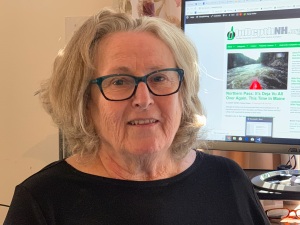
I’ll be part of a panel tomorrow discussing job opportunities for new and recent journalism graduates. My role will be to talk about opportunities at the rising generation of local and regional news startups. I am not quite sure what to tell them, but more than anything I want them to know that they need to be resourceful.
About a dozen years ago, Thomas MacMillan told me how he got hired at the New Haven Independent, one of the original nonprofit digital-only local news sites. He was working at a non-journalism job and started doing some interning. He asked the editor, Paul Bass, how he could turn that into a staff job, and Bass’ unconventional answer was that MacMillan should write a grant to fund his position. MacMillan did it, got hired and, in my 2013 book, “The Wired City,” talked about the rewards.
“It’s really fun for me to feel like we’re on a rising star rather than a sinking ship,” MacMillan said. “There’s just something exciting about feeling like you’re working on the new paradigm, where you can experiment and try different things and people will occasionally take notice of what you’re doing.”
What I will tell students is that jobs at these startups are few and far between, but if you can land one, they come with great mentoring and, in some cases, surprisingly good pay. From my conversations with people, I’ve found that nonprofit boards and independent operators take their obligation to provide a living wage and benefits seriously. At the very least, journalists at these organizations are often making more than they would at a chain-owned newspaper.
Students can’t just expect jobs to open up, because that doesn’t happen all that often. Identify two, three or five that you’d like to work at. Get in touch and stay in touch. Cover some news for them — not for free, of course, but in most cases they’re not going to hire someone they don’t have a prior relationship with.
To prepare for the panel, I contacted an array of startup news folks to see what advice they would give to students. I present their lightly edited answers in full. Continue reading “Startup news leaders tell journalism students how to get that first job”





